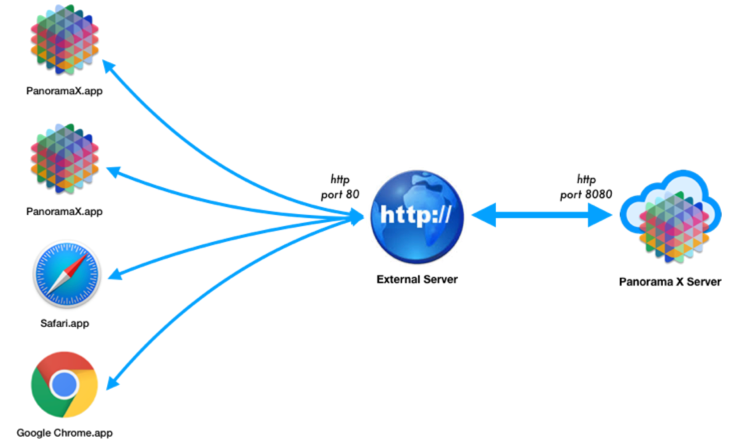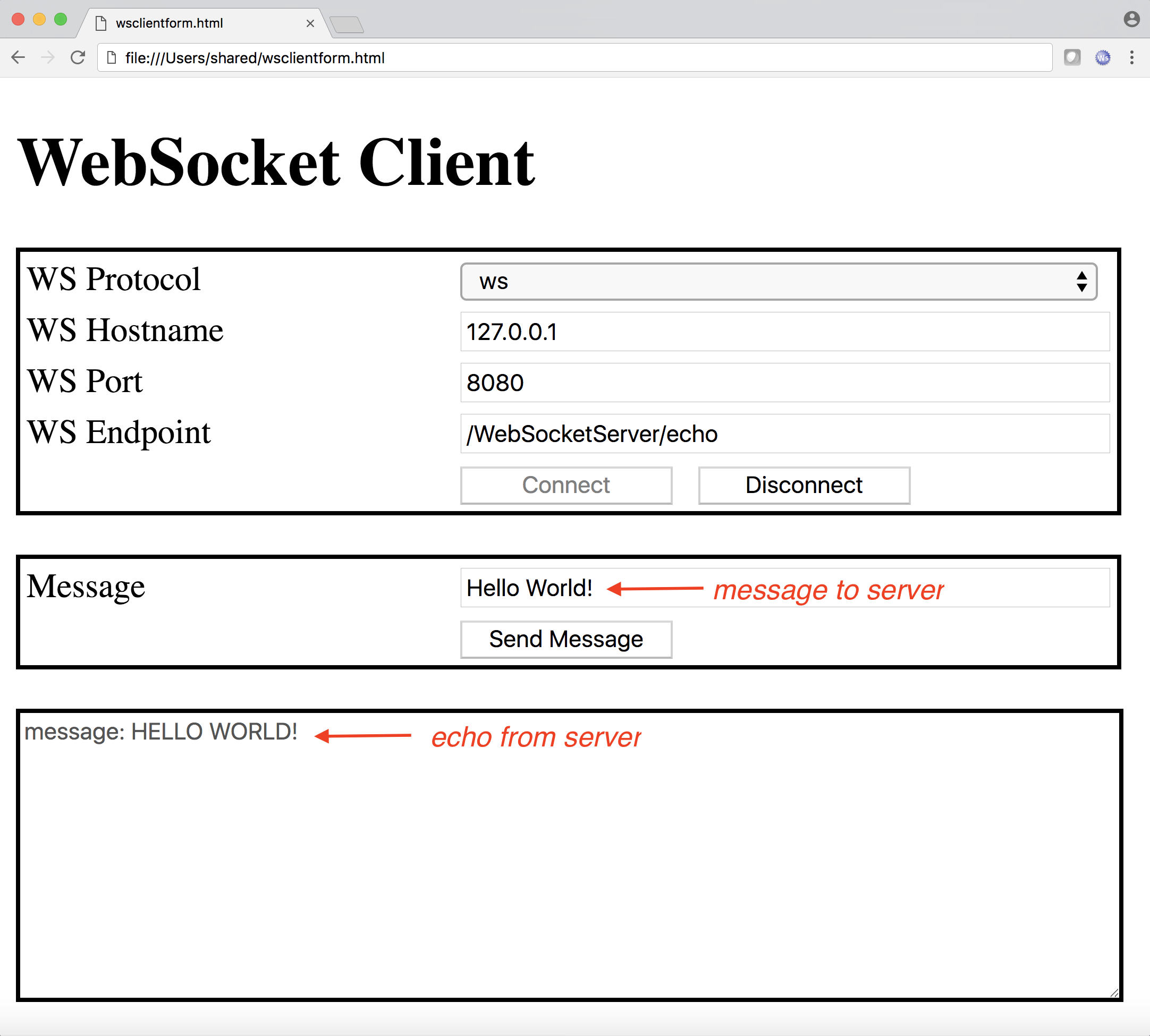
Python is an extremely versatile language. It can be used in a wide range of projects, even web applications. A server is required to make the code work. A simple computer running Python can do the job, as well as a server on a cloud. There are various servers which can run your Python code.
Server for python
The best server for python is the Python HTTP server, which can be installed on a system without the need for a framework or other software. The server can be configured to serve files only, or it can handle a wide range of other requests.
WSGI for python
The Python Web Server Gateway Interface was developed to create a unified communication between Python programs, and web servers. It was proposed in 2003 and is widely adopted by many Python frameworks today, such as Django or Flask.

WSGI has two sides, the server/gateway side and the application/framework side. The server/gateway side handles all of the client's requests, allowing it to return HTML web pages and semi-structured data in a format the client can understand. The application/framework side provides the Python callable that the server can use to communicate with the Python program.
A server interface interface (or webserver for short) can be implemented a few different ways. But it usually involves one module which implements two sides of the interface. This module provides Python and non Python APIs in order to access the opposite side of the link. There are several WSGI-compatible Python Web Servers available.
CherryPy for Python
CherryPy is a WSGI, HTTP/1.1-compliant web server for Python. It supports SSL and can be used for any WSGI Python applications. It is an easy-to adapt, easy-to use pure Python alternative that is reliable and robust.
Gunicorn for Python
Gunicorn is not only a Python web server, but also a flexible and powerful application server. It can be used to run WSGI Python applications and frameworks, as well as a variety of WSGI languages.

Heroku for python
Heroku's PaaS is the most recommended platform for Python-based web applications. It allows developers to create applications using Python, and then deploy them to a scalable, high-performance cloud environment that is optimized for Python. Heroku allows you to create applications for free, and it offers both hobbyist and professional plans.
Crusader for python
Crusader has a scalable general purpose server framework. The application server has many features including an arbitrary objectpooling feature and an object database. It offers extensive documentation and a support network. This makes it an excellent choice for Python programs that require a stable foundation.
Giotto for Python
Giotto, an MVC framework, separates the view and controller components of a Python application. It is also a framework that places a high priority on privacy and security, making it ideal for web apps with sensitive information about users or online transactions. It is used in many Python applications for enterprise use, including at Hulu, Netflix and other companies.
FAQ
How to Create a Static Website
To create your first static website, you'll need to choose between two options:
-
Using a Content Management System (a.k.a. WordPress): You can download this software and install it on your computer. This will allow you to create an essential website.
-
Creating a Static HTML Website: In this case, you'll need to write your HTML/CSS code. It's not hard to do if you already understand HTML.
Consider hiring an expert to build your large website.
You should start with option 2.
How do I choose the right domain name?
It is important to pick a quality domain name. People won't know where to go if they don't have a good domain name.
Domain names should be simple, short, easy-to-remember, relevant to your brand and unique. You want it to be something people will type into their browser.
Here are some tips to help you choose the right domain name.
* Use keywords relevant to your niche.
* Do not use hyphens (-), numbers or symbols.
* Don't use.net or.org domains.
* Do not use words you already know.
* Avoid generic terms, such as "domain" or web site.
* Check that it is available.
Where can you find freelance web developers?
There are many places where you can find web developers and freelance web designers. These are some of the best choices:
Freelance Sites
These sites have job listings that are open to freelance professionals. Some require you to do specific work, while others are open to all types of work.
Elance has many high-quality positions for writers, programmers (programmers), editors, translators and managers.
oDesk has similar features, but they focus on software development. They have jobs available in PHP, Perl JavaScript, Ruby and.NET developers.
oWOW is another good option. Their site is focused on web designers and graphic artists. They also offer video editing services such as writing, programming SEO and social media management.
Online Forums
Many forums let members advertise and post jobs. DeviantArt, for web developers, is one example. Searching "web developer", in the search bar will bring up a list with threads that are looking for help with websites.
Can I make my website using HTML and CSS?
Yes, you can! You will need basic knowledge of web design and programming languages like HTML (Hyper Text Markup Language) and CSS (Cascading Style Sheets). These two languages allow you to create websites that can then be viewed by anyone who has access to your internet connection.
How to design your website?
Your customers will first need to understand the purpose of your website. What are they looking at when they visit your site.
What problem might they face if your site doesn't have what they are looking for?
Once you know this, you must figure out how to solve those problems. Also, you need to ensure that your website looks professional. It should be easy to use and navigate.
You should have a well-designed website. You should ensure that your site loads quickly. If it takes too long, people may not be able to stay as long. They'll go somewhere else instead.
You need to consider where your products are located when you build an eCommerce website. Do they all reside in one spot? Are they spread around your site?
Decide whether you plan to sell one product at a time or several products. Are you looking to sell one product or several?
You can start building your site when you've decided on these questions.
Now it is time to focus on the technical side. What will it take to make your site work? Is it fast enough? Is it possible to access the information quickly using a computer?
Are people able to purchase something without paying extra? Do they need to register in order to buy anything?
These are essential questions that you need to ask yourself. You'll be able to move forward once you have the answers to these important questions.
How Much Does It Cost To Create An Ecommerce Website?
It all depends on what platform you have and whether or not you hire a freelancer. eCommerce websites start at about $1,000.
You can expect to pay between $5000 and $10,000 for a platform once you have decided.
Templates are usually not more expensive than $5,000, unless you have a specific purpose. This includes any customizations required to reflect your brand.
Do I Need Any Technical Skills To Design And Build My Site?
No. You only need to have a basic understanding of HTML/CSS. You can easily find tutorials online that teach both HTML and CSS.
Statistics
- It's estimated that chatbots could reduce this by 30%. Gone are the days when chatbots were mere gimmicks – now, they're becoming ever more essential to customer-facing services. (websitebuilderexpert.com)
- Studies show that 77% of satisfied customers will recommend your business or service to a friend after having a positive experience. (wix.com)
- When choosing your website color scheme, a general rule is to limit yourself to three shades: one primary color (60% of the mix), one secondary color (30%), and one accent color (10%). (wix.com)
- It enables you to sell your music directly on your website and keep 100% of the profits. (wix.com)
- It's estimated that in 2022, over 2.14 billion people will purchase goods and services online. (wix.com)
External Links
How To
What is website hosting?
Website hosting refers simply to the place that people visit when they visit a website. There are two types.
-
Shared hosting - This is the cheapest option. Your website files will reside on a server belonging to someone else. Your customers' requests travel via the Internet to your server when they visit your site. The request is then handed to the owner of that server.
-
Dedicated hosting: This is the most costly option. Your website is located on only one server. You and your traffic are protected by the fact that no other websites share server space.
Shared hosting is cheaper than dedicated hosting for most businesses. The company hosting the server will provide the resources necessary to manage your website.
Both options have their pros and cons. These are the key differences between them.
Sharing Hosting Pros
-
Lower Cost
-
Easy to Setup
-
Frequent updates
-
It can Be Found On Many Web Hosting Companies
Hosting shared with others can cost as low as $10/month. But keep in mind that this price usually includes bandwidth. Bandwidth refers to the amount of data you can transfer across the Internet. You may have to pay extra for large amounts of data, even if your blog only contains photos.
Once you begin, you will soon see why you spent so much on your previous host. The majority of shared hosts offer limited customer support. While they may occasionally assist you in setting up your site and other tasks, after that you are all on your own.
A provider with 24-hour telephone support is a good choice. They will help you deal with any issues that arise while your sleeping.
Dedicated Hosting Cons:
-
More Expensive
-
Less Common
-
Specific Skills Required
With dedicated hosting, you get everything you need to run your website. You don't need to worry about bandwidth usage or RAM (random access memory).
This means that upfront, you'll need to spend a bit more. However, once your business goes online, you'll discover that you don’t need as much technical support. You'll soon be an expert at managing servers.
Which is better for my business?
The answer to this question depends on which type of website you wish to create. If you only want to sell products, then shared hosting might be the best choice. It's simple to set it up and keep it updated. Because you share a server, you will most likely receive frequent updates.
If you want to create a community around a brand, dedicated hosting may be the best choice. Instead of worrying about traffic, you can concentrate on building your brand.
Bluehost.com has both. Bluehost.com offers unlimited monthly data transfers, 24/7 customer support, domain registrations free of charge, and a 30-day guarantee for your money back.